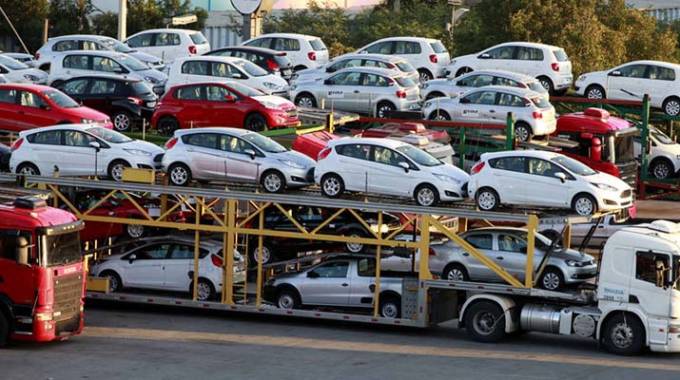Clampdown on imported vehicles
Government has begun mandatory inspections of all imported second-hand vehicles as part of broader assessments to curb the importation of substandard goods into the country.
The scope of the checks includes investigating potential cases of odometer fraud, excessive rust and tyre wear, as well as airbag functionality.
The mandatory inspections, which commenced on Friday, will also cover all imported vehicles’ emission levels.
Vehicles failing to meet these standards could potentially be denied entry into the country.
The inspections extend to imported spare parts.
In a presentation during a workshop organised by the Ministry of Industry and Commerce on consignment-based conformity assessment in Harare last week, Bureau Veritas (BV) contracts manager Mr Tendai Jeremiah Malunga said the compulsory inspections were scheduled to begin on March 1.
BV is contracted by the Government to provide pre-shipment inspection services for specific imported goods deemed essential for quality control.
The service helps to curb an influx of substandard goods into the country.
BV is charging between US$140 and US$200 per vehicle for inspection.
“Used vehicles and spare parts will be undergoing compulsory inspection from March 1 this year,” he said.
“This scheme was introduced on September 1, 2023 by the Ministry of Industry and Commerce.”
Last year, the Government promulgated Statutory Instrument (SI) 156, which mandates pre-shipment inspections for specific imported goods entering Zimbabwe.
It applies to a specific list of regulated goods deemed essential for quality control, such as used motor vehicles and spare parts, electrical goods, building materials and chemicals.
“The goal is to do intricate checks on odometer fraud; that they are solid vehicles; there is no water and structural damage.
“We will also check for whether tyre treads are worn out, excessive rust, airbag functionality, faulty lights and excessive emissions.”
Odometer fraud refers to tampering with the vehicle’s mileage readings.
Inspectors will also check vehicle tyres to ensure they meet safety standards and have sufficient tread depth, while also identifying vehicles with significant rust damage that could compromise structural integrity.
In addition, they will verify the proper operation of airbags and essential vehicle lights.
BV, Mr Malunga said, will be sending teams to conduct pre-shipment checks on used vehicles in Japan and ports such as Dar es Salaam in Tanzania.
“We are going to have teams that will visit the source of the imports to check the products before they are shipped into the country,” he added.
“This is called pre-import checking and that will be coupled with checks at the port of entry in terms of those vehicles which have not been tested at the source or port.”
In terms of the SI, importers of the regulated goods must arrange for pre-shipment inspections by designated conformity assessment bodies (CABs) like Bureau Veritas before the goods are shipped to Zimbabwe.
CABs will inspect the goods against set technical standards and regulations to ensure they meet specific quality and safety requirements.
If the goods comply with the standards, the CAB will issue a certificate of conformity, which is necessary for customs clearance in Zimbabwe.
The new regulations, however, outline exemptions for certain categories, such as personal effects or goods imported by Government entities that might not require pre-shipment inspections.
Mr Malunga said the inspections were not meant to deny entry to vehicles with defects, but to make sure they meet the country’s set standards.
There is also room to allow importers to repair their vehicles before they are allowed to enter the country.
“It can fail the first criteria, but if we see that it can be repaired, we are going to allow you to do the repairs and then come back for a recheck,” he said.
“However, if found to be beyond repair, we issue a certificate of non-conformity.
“This means the vehicle or the spare parts cannot enter or be used in the country.”
He said a fee of US$140 will be charged for each inspection on all vehicles coming from other destinations, except the United Kingdom.
“The US$140 is the standard charge for vehicles from across the globe, except for the UK, which is US$200.
“These are the charges put by the Government.
“The importer has to fill the forms and the vehicle tested for roadworthiness and we issue a certificate,” he said.




